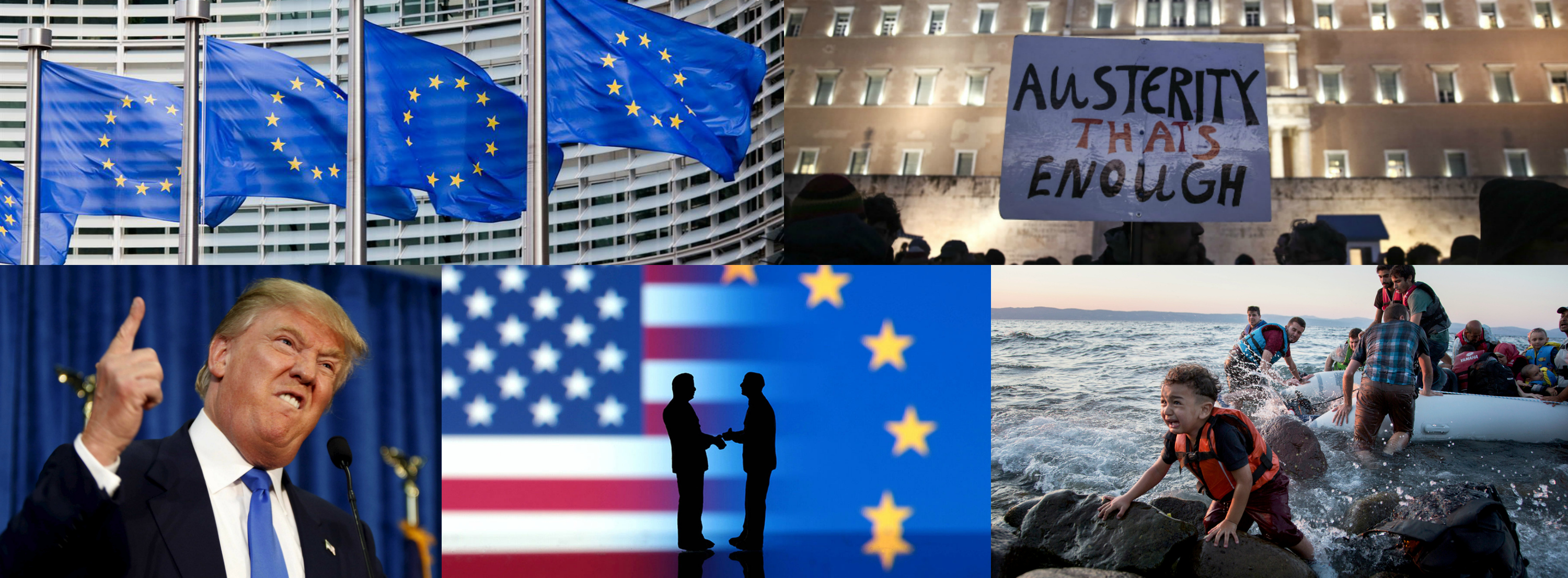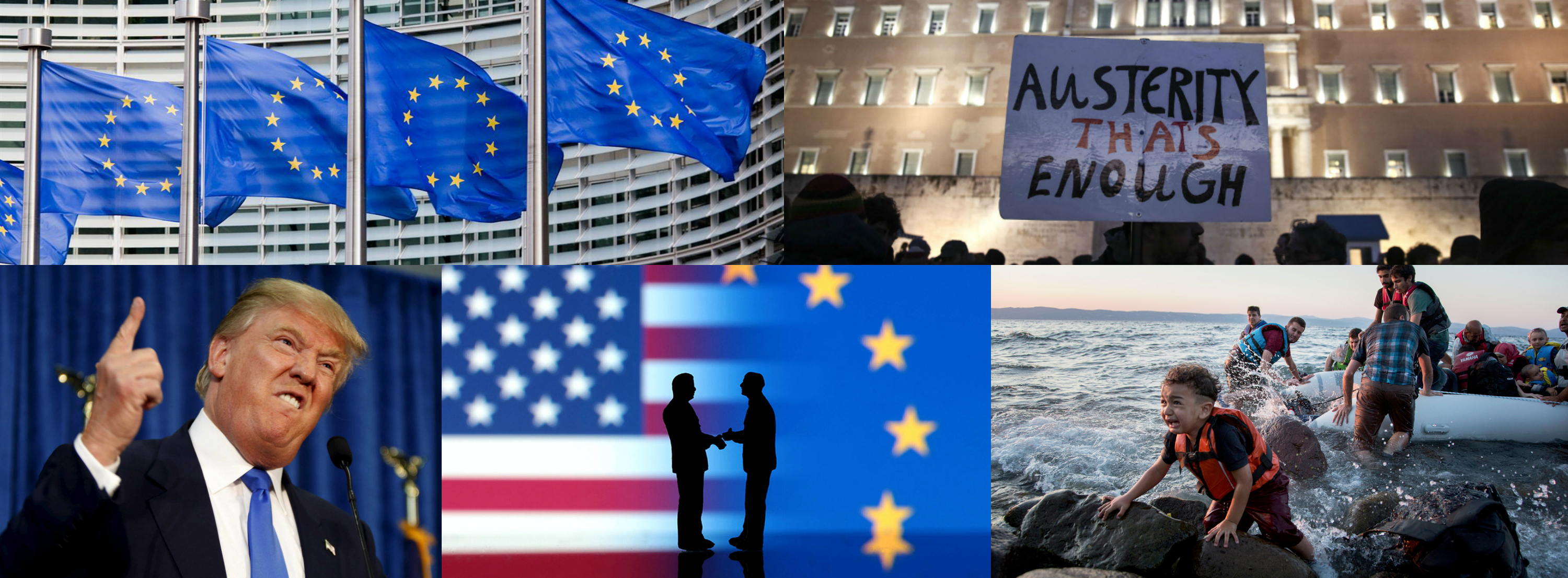
By Fabian Fechner, from Politix EU

Politics, and especially democracy, in Europe have changed. In the old days social cleavages, ideologies, and parties were diametrically opposed. Today we see a more homogenous, seemingly conflict-free political establishment facing distrustful citizens. Years ago people were proud of ‘their’ Member of the Parliament – be it in Paris, London, Berlin or even the European Parliament in Brussels. These days are long gone. Today, it is more common to think that the representatives of the people are more interested in their own well-being than in that of the country and its citizens.
This process started slowly but has accelerated in the past couple of years. People have become wary of consensus politics exercised in many European countries led by , for example in Germany, Austria and the Netherlands. There is a lack of political debate or even controversy on factual issues. Instead politicians tend to focus on personal matters, like who is going on maternity leave or take over the next leadership role. For instance, ahead of the 2014 EP elections we were arguing more about than about his vision for a socialist Europe. Frankly, there are a lot of issues that politicians should be debating publically right now. People are anxious about the US and EU free trade agreement, TTIP, and what it means for their lives. Citizens want to know what the NSA has been up to and which conversations they have been and are still tapping. But we do not see these kinds of topics being seriously and thoroughly debated by a wide range of parties and parliamentarians.
This process started slowly but has accelerated in the past couple of years. People have become wary of consensus politics exercised in many European countries led by grand coalition governments, for example in Germany, Austria and the Netherlands. There is a lack of political debate or even controversy on factual issues. Instead politicians tend to focus on personal matters, like who is going on maternity leave or take over the next leadership role. For instance, ahead of the 2014 EP elections we were arguing more about Martin Schulz’ Twitter accounts than about his vision for a socialist Europe. Frankly, there are a lot of issues that politicians should be debating publically right now. People are anxious about the US and EU free trade agreement, TTIP, and what it means for their lives. Citizens want to know what the NSA has been up to and which conversations they have been and are still tapping. But we do not see these kinds of topics being seriously and thoroughly debated by a wide range of parties and parliamentarians.
A first result of this refusal to debate real issues is that people stop caring about conventional politics. Yet, they are not necessarily fed up with politics, but primarily with politicians. Consequently, they find new resources and find new go-to people to discuss their societal and political needs. This is where Marine Le Pen, Geert Wilders, PEGIDA, UKIP, the FPŌ but also left-wing Podemos and Syriza come into play. These types of (extreme) right- and left-wing politicians and parties are now establishing themselves all over Europe. Moreover, especially the right-wing ones are currently threatening the Europe we built with their nationalist ideologies.
What could be a solution? This article suggests three interconnected approaches: (1) More conflict in politics through (2) better, more neutral information paired with an intrinsic trust in the judgment of the people, who usually have opinions and continuously use social media to share those. Combined with (3) a political system that listens to these kinds of signals and opinions.
Bertolt Brecht came up with something called radio theory. He claims that the advent of the first mass medium – radio – created the possibility to say everything to everyone. Yet, someone has to actually listen to what is being said. We are still grappling with that exact problem. Politicians and politics in general are still not listening. There is a feedback loop formed of societal problems, for instance, uneconomical tariffs and barriers between the EU and US, political solutions (TTIP) and citizens’ reaction to it: doubt, mistrust, rejection. This loop is interrupted at that last stage. As a result, people’s reactions are not incorporated into finding the solution.
“It is purely an apparatus for distribution, for mere sharing out … change this apparatus over from distribution to communication. The radio would be the finest possible communication apparatus in public life … That is to say, it would be if it knew how to receive as well as to transmit, how to let the listener speak as well as hear, how to bring him into a relationship instead of isolating him. On this principle the radio should step out of the supply business and organize its listeners as suppliers. Any attempt by the radio to give a truly public character to Public occasions is a step in the right direction.” Bertolt Brecht
Brecht concluded that radio needed to be converted into a medium of communication that works both ways – by transmitting and receiving. Fortunately, the Internet has subsequently given us that possibility. We need to use this tool as a way to move democracy to the next level and close the feedback loop: By breaking down complicated law-making-processes and facilitating access to information, by using plain and simple language and by integrating elements from social networks users know well, and finally by showing citizens what a specific law means for them. Only if people are involved, they understand. And only if they understand they can start sending back the messages politicians must receive.
For hundreds of years politics has been a one-way street. But it needs to become a two-way street and the internet has made this possible. Politics concerns everyone – everyone capable of reasoning. So we need a new Enlightenment 2.0 since people cannot just be excluded from the process. Decision makers need to tune in to what people are saying and take them seriously. If they don’t, people will only look in other places and find alternative recipients.
With this in mind, a number of questions arise to which we might not have conclusive answers at the moment:
- How can we ensure that information is neutral?
- We at Politix EU think that there is a need platforms that are independent of institutions and politicians, and which present comprehensible and easily digestible information to the average citizen. We also provide users with the positions and opinions of lobbyists and NGOs to give citizens a 360 degree view on an issue.
- How can we generate trust in the judgment of people?
- In a democratic society, trust in the people is essential. If we are a society of enlightened individuals – which we are convinced we are – this trust comes automatically. Otherwise democracy doesn’t work
- Are people ready to participate in politics in a more active way?
- To be clear – this is not about direct democracy here. We just want representative democracy to work better by including the people. If this works out in the end? I can only give a hardly satisfying answer: Time must tell.
What do you think?
- Articles and Blogs
- Elections
- EU Foreign Policy
- EU Policy Process
- EU-Africa
- EU-USA
- Eurocrisis
- European Integration
- Geen categorie
- Partnerships
- Uncategorized

 The geopolitical role of the Sahel: the influence of the EU and other Great Powers in the Malian crisis
The geopolitical role of the Sahel: the influence of the EU and other Great Powers in the Malian crisis  Is Nuclear Disarmament Still a Dream? The Third Meeting of State Parties in Perspective
Is Nuclear Disarmament Still a Dream? The Third Meeting of State Parties in Perspective  Strategic Saboteur: Hungary’s Entrenched Illiberalism and the Fracturing of EU Cohesion
Strategic Saboteur: Hungary’s Entrenched Illiberalism and the Fracturing of EU Cohesion  The invention of development: power, narrative, and the afterlife of Truman’s speech
The invention of development: power, narrative, and the afterlife of Truman’s speech 


